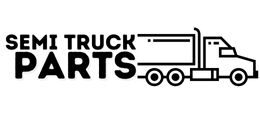Importance of Choosing the Right Suspension for Hauling
When it comes to hauling heavy loads, the suspension system of your vehicle plays a critical role in performance and safety. A quality suspension ensures that your vehicle can carry the added weight without compromising comfort, stability, or handling. Whether you’re towing a trailer, hauling construction materials, or transporting goods, the right suspension system helps manage the strain and provides better control.
A good suspension minimizes the risk of bottoming out, reduces wear on tires, and ensures the vehicle stays balanced under heavy loads. Additionally, it enhances the overall driving experience by absorbing shocks from the road, providing smoother rides, and preventing swaying or bouncing during transport.
Choosing the right suspension system isn’t just about lifting the load – it’s about maintaining your vehicle’s safety and ensuring a smooth, reliable ride, no matter how much you’re hauling. With the right setup, you can protect your investment in your vehicle while improving its efficiency. This chapter explains why a proper suspension system is vital for anyone regularly hauling heavy cargo.
2. Types of Suspension Systems for Hauling
When selecting a suspension system for hauling, understanding the different types available is essential. Each type offers unique advantages based on the specific demands of the load you’re carrying. Below are the most common suspension types and how they perform when hauling:
1. Leaf SpringsLeaf springs are a traditional suspension choice known for their durability and ability to handle heavy loads. These springs are made of several layers of metal and are often used in trucks and trailers. They provide excellent load-bearing capacity, making them ideal for hauling purposes. However, they can be less comfortable for everyday driving due to their stiffness.
2. Coil Springs
Coil springs are commonly used in modern vehicles for a smoother ride. They work well for both light and heavy hauling, offering better comfort and handling compared to leaf springs. However, for extremely heavy loads, they may not perform as well without additional support, such as an airbag system.
3. Air Suspension
Air suspension systems use air springs to provide a highly adjustable and smooth ride. They are ideal for hauling because you can easily adjust the air pressure to accommodate different load sizes. This type of system is particularly effective for vehicles that carry varying weights and require a high level of customization.
4. Torsion Bars
Torsion bars are another suspension option that works by twisting a bar to provide spring tension. They are often used in off-road vehicles and offer great load-bearing capacity. While not as commonly used for hauling as leaf or air suspension systems, torsion bars are beneficial for heavy-duty vehicles in certain applications.
Each suspension type has its strengths and is suited for different hauling needs, so choosing the right one depends on the type of loads you plan to carry.
3. Top Suspension Brands for Hauling
When it comes to hauling heavy loads, choosing a reliable brand for your suspension system is crucial to ensure optimal performance and durability. Here are some of the top brands renowned for their high-quality suspension systems designed specifically for hauling:
1. Bilstein
Bilstein is a well-known brand in the suspension industry, offering top-tier products designed for heavy-duty use. Their shocks and struts are engineered to handle the harsh conditions of towing and hauling. With a reputation for durability and superior performance, Bilstein’s systems are widely favored for both on-road and off-road hauling.
2. Fox Racing Shox
Fox Racing Shox is another industry leader known for producing suspension systems that provide exceptional control and handling under heavy loads. Their systems are designed with advanced technology, ensuring stability and comfort even when carrying or towing large loads. Fox Racing Shox is especially popular among off-road enthusiasts and those who need enhanced performance in tough conditions.
3. Air Lift
Air Lift specializes in air suspension systems that are perfect for those who frequently haul varying loads. Their air springs can be adjusted to provide the right amount of lift, ensuring that your vehicle remains stable and level regardless of the load. Air Lift products are easy to install and are known for improving both towing and hauling capabilities.
4. Rancho
Rancho is another respected name in the suspension industry, providing solutions for trucks and SUVs that need to carry or tow heavy loads. Their adjustable shock absorbers and suspension systems offer enhanced comfort and load management. Rancho products are known for their robustness, making them a go-to choice for hauling.
Each of these brands offers reliable suspension systems with excellent build quality and performance, ensuring that your hauling needs are met with ease. Depending on your vehicle’s requirements and the type of hauling you do, one of these brands will likely have the ideal solution for you.
4. Key Features to Look for in Suspension Systems for Hauling
Choosing the right suspension system for hauling requires considering various key features that affect the performance, comfort, and durability of your vehicle under load. Here are the most important features to evaluate when shopping for a suspension system:
1. Load Capacity
One of the most critical features is the suspension’s load capacity, which determines how much weight it can safely support without compromising performance. When hauling, you’ll need a suspension that can handle the combined weight of the cargo and the vehicle’s total load. Be sure to select a suspension system that exceeds your typical load to ensure safety and efficiency.
2. Adjustability
Adjustability is particularly important for those who haul varying weights. An adjustable suspension allows you to modify the ride height or stiffness depending on the load you are carrying. Air suspension systems are a popular choice for this feature, as they allow for precise customization to meet different hauling needs.
3. Durability and Build Quality
Durability is essential when hauling heavy loads, as the suspension will undergo significant stress over time. Look for suspension systems made from high-quality materials like heavy-duty steel or aluminum. A well-built system will not only withstand the pressure of heavy loads but also provide long-lasting performance.
4. Ride Comfort and Stability
Although hauling is often about load capacity, ride comfort and stability are still important. A good suspension system should ensure that your vehicle remains stable and smooth even with a heavy load. This will reduce the risk of swaying or bouncing, leading to better control and a more comfortable driving experience.
5. Compatibility
Finally, ensure the suspension system is compatible with your vehicle’s make and model. Some systems are designed specifically for certain types of trucks or SUVs, so it’s important to choose one that fits your vehicle’s specifications. This will prevent installation issues and maximize performance.
By prioritizing these key features, you can select a suspension system that not only meets your hauling needs but also ensures safety, comfort, and long-term reliability.
5. Benefits of Upgrading Your Suspension for Hauling
Upgrading your vehicle’s suspension system for hauling purposes offers a range of benefits that significantly improve the overall performance, safety, and comfort when carrying heavy loads. Here are the top advantages of investing in a suspension upgrade:
1. Improved Load Management
Upgrading to a higher-quality suspension system allows your vehicle to handle heavier loads with ease. A more robust system can distribute the weight more evenly across the vehicle, reducing strain on individual components and ensuring a smoother, safer ride. This is particularly beneficial for those who frequently haul large or heavy items.
2. Enhanced Ride Comfort
Stock suspension systems can struggle to provide a smooth ride under heavy loads, leading to discomfort, bouncing, and swaying. Upgrading your suspension, especially with systems like air suspension, helps absorb shocks more effectively. This results in a much more comfortable ride, even when carrying substantial weight, making long hauls much easier on both the vehicle and the driver.
3. Better Stability and Control
A good suspension upgrade enhances vehicle stability, especially when towing or carrying a heavy load. It helps prevent the vehicle from bottoming out or sagging, both of which can affect handling and braking. By improving control, your vehicle is less likely to sway or fishtail, even when navigating through curves or rough terrain, ensuring safer hauling.
4. Longer Lifespan for Your Vehicle
A suspension system designed to handle heavier loads reduces the wear and tear on other parts of the vehicle, such as tires, axles, and shock absorbers. By choosing the right suspension upgrade, you can extend the lifespan of your vehicle, avoiding costly repairs down the line. This makes upgrading a smart investment in the long run.
5. Increased Towing Capacity
An upgraded suspension system can also improve your vehicle’s towing capacity, allowing it to safely tow larger trailers or heavier cargo. This is particularly important for vehicles that regularly tow equipment or trailers, as the added support helps maintain the vehicle’s balance and prevents overloading.
Overall, upgrading your suspension for hauling is an investment that brings both short-term and long-term benefits, enhancing vehicle performance, safety, and comfort while reducing maintenance costs and improving load management.
6. Factors to Consider Before Choosing Suspension for Hauling
Before selecting the ideal suspension system for hauling, it’s important to consider several factors that will impact both the performance and safety of your vehicle. These considerations ensure you make the best decision for your specific hauling needs:
1. Load Weight
One of the primary factors to consider is the weight of the loads you typically carry. Different suspension systems are designed to handle different weight capacities, so it’s essential to match the system to the weight of your typical haul. For example, air suspension systems are adjustable and can handle a variety of load sizes, while leaf springs may be more suited for heavier, more constant loads.
2. Vehicle Type and Compatibility
Not all suspension systems are compatible with every vehicle, so it’s important to choose one that matches your vehicle’s specifications. Whether you’re working with a truck, van, or SUV, make sure the suspension system you select is designed for your vehicle type and its intended use. Ensure that the system fits within your vehicle’s existing framework to avoid compatibility issues.
3. Terrain and Driving Conditions
Think about the conditions in which you’ll be hauling. Will you be driving on smooth highways, or are you navigating off-road terrain? If you frequently haul on rough, uneven roads, a more durable system like a heavy-duty coil or leaf spring setup may be necessary. On the other hand, if you mostly drive on smooth roads, an air suspension system that offers a comfortable and adjustable ride might be ideal.
4. Budget
Suspension systems vary significantly in price, and while it’s tempting to go for a less expensive option, it’s important to balance cost with performance. Higher-quality systems may come with a higher initial investment but will often provide better durability, enhanced load capacity, and fewer repairs over time. Assess your budget and determine the best balance between cost and the long-term benefits the suspension system offers.
5. Towing and Hauling Frequency
Consider how often you will be towing or hauling heavy loads. If you’re hauling frequently, investing in a higher-end suspension system that offers more durability and load capacity will be a wise choice. For occasional hauling, a more basic system may suffice, but ensuring that it meets your specific load requirements is still key.
By evaluating these factors, you can make a more informed decision about which suspension system will best suit your hauling needs. Whether it’s handling larger loads or improving comfort, considering these aspects ensures you choose a system that enhances your vehicle’s hauling capabilities.
7. Installation Process of Suspension Systems for Hauling
Installing a suspension system for hauling can significantly improve your vehicle’s load management and performance. However, it’s important to understand the installation process to ensure that it’s done correctly and safely. Here’s a breakdown of what to expect during installation:
1. Professional vs. DIY Installation
While some suspension systems can be installed by DIY enthusiasts, others may require professional assistance. For instance, air suspension systems or heavy-duty coil springs may require specialized tools and expertise. If you’re not experienced with vehicle modifications, it’s usually best to have a professional handle the installation to ensure everything is done correctly.
2. Preparing Your Vehicle
Before installation, ensure your vehicle is parked on a flat, stable surface, and the wheels are blocked to prevent movement. Depending on the type of suspension system, you may need to lift the vehicle with a jack to access the suspension components. Always follow the manufacturer’s instructions regarding the lifting procedure and ensure that the vehicle is secure.
3. Removing the Existing Suspension
If you’re replacing an old suspension system, the first step is removing the existing components. This may involve unbolting the current shocks, springs, or airbags. For some suspension systems, you’ll also need to disconnect brake lines or other connected parts. Carefully note the order of removal to make reinstallation smoother.
4. Installing the New Suspension
Once the old suspension is removed, you can begin installing the new system. For air suspensions, this may involve installing air bags or tanks and running air lines. Leaf or coil springs may require specific mounting adjustments. Ensure that all parts are properly aligned and securely fastened. Torque bolts and nuts to the manufacturer’s specifications to avoid over-tightening or under-tightening, both of which could affect performance.
5. Testing and Adjusting
After installation, it’s essential to test the new suspension system under load conditions to ensure it functions as expected. If the system is adjustable, make any necessary adjustments to the ride height or stiffness based on the load you plan to carry. Take the vehicle for a test drive to assess the handling and comfort, ensuring that the suspension operates smoothly and effectively.
6. Maintenance and Inspection
Regularly inspect your new suspension system for any signs of wear, loose components, or damage. Routine maintenance can help extend the life of your system and ensure that it continues to perform at its best. If any issues arise, address them immediately to avoid compromising the system’s performance.
The installation process can vary depending on the type of suspension system, but by following proper procedures and considering professional help if needed, you can enjoy a more effective and safer hauling experience.
Best Suspension for Hauling
Choosing the best suspension for hauling is essential for ensuring safety, comfort, and performance when carrying heavy loads. The right suspension system not only helps manage the weight but also improves ride quality and vehicle control, making your hauling experience smoother and more reliable.
When selecting a suspension system, consider factors such as load capacity, adjustability, durability, and compatibility with your vehicle. Each type of suspension, whether it’s leaf springs, air suspension, or coil springs, offers unique advantages that suit different hauling needs. Additionally, reputable brands like Bilstein, Fox Racing, and Air Lift provide high-quality systems designed specifically for heavy-duty use.
Upgrading your suspension brings numerous benefits, including better load management, enhanced comfort, and increased vehicle longevity. With the right suspension, you can enjoy improved towing capabilities, smoother rides, and more reliable performance under load.
Ultimately, the best suspension for hauling is the one that fits your specific needs, whether you’re transporting heavy equipment, towing a trailer, or hauling goods over long distances. By carefully considering your vehicle’s requirements and the type of loads you carry, you can make an informed decision that will improve both the efficiency and safety of your hauling endeavors.
For detailed information, you can contact us at torqueusa.com


